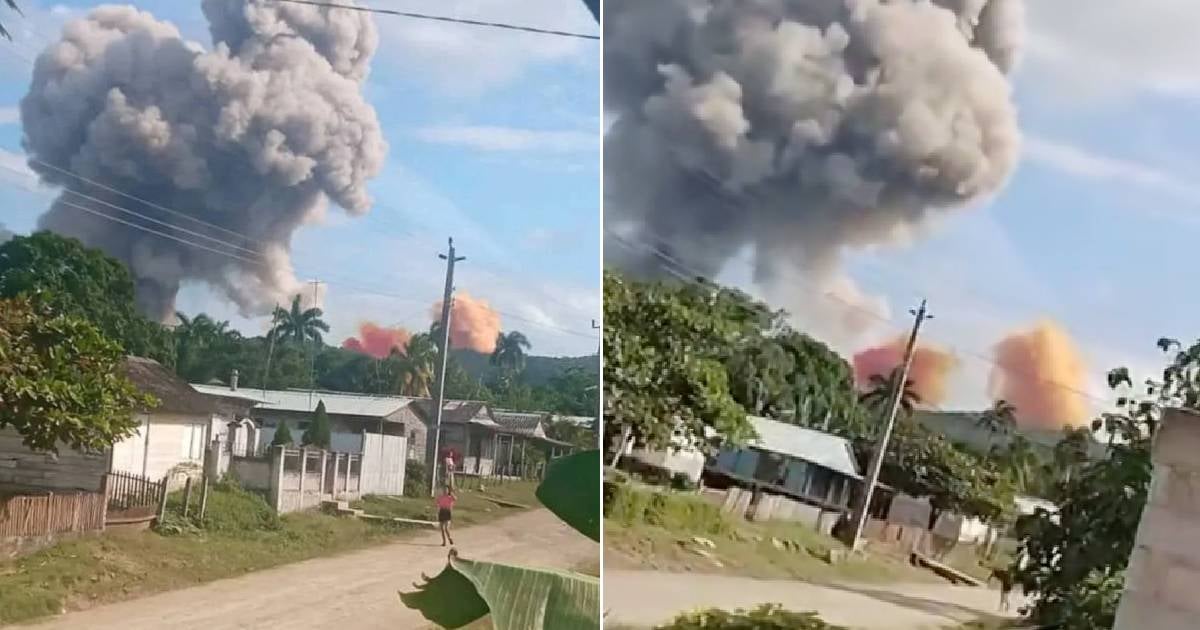
Related videos:
The explosion of an arms and ammunition depot in the community of Melones, Rafael Freyre municipality, Holguín, has triggered strong criticism against the Revolutionary Armed Forces (FAR) and Mandatory Military Service (SMO) in Cuba, to which the regime is attempting to justify its stance.
Despite the tragic incident that has left 13 people missing, including 9 young recruits, spokespersons such as Javier Gómez Sánchez and Michel E. Torres Corona, host of the official program Con Filo, have stepped forward to defend the controversial SMO on the island.
In a post shared on social media, Gómez Sánchez expressed his sorrow for the loss of human lives, describing the incident as "an irreparable blow to their families" and "a day of mourning for Cuba." However, he took the opportunity to criticize those who have highlighted the precariousness and dangers of the Cuban military system.
"It is unscrupulous to take advantage of such a sensitive event to discredit our country's historical need to prepare for defense," argued Gómez Sánchez. According to him, Cuba's geopolitical reality has compelled the nation to allocate resources and lives to ensure its defense.
For his part, Michel E. Torres Corona shared this message to express his support for the SMO amid the renewed debate on the mandatory Military Service in Cuba, particularly regarding the security conditions and the equipment of military warehouses and bases.
For many critics, the accident highlights the consequences of an obsolete and under-resourced system, where inexperienced young people are exposed to unnecessary risks.
At the international level, statements from official spokespeople have been seen as an attempt to justify the SMO in a context of increasing social discontent within the island, where multiple sectors of the population question the priority given to militarization over social needs such as health, education, and food.
While the country is in mourning, various voices inside and outside of Cuba are calling for a deep reflection on the continuation of policies that, according to critics, unnecessarily endanger young Cubans.
Meanwhile, the families of the victims and the missing await clear answers regarding the circumstances of the accident, while the government insists on maintaining its narrative about the necessity of Military Service as a pillar of national defense.
Frequently Asked Questions about Military Service and Security in Cuba
What happened at the military warehouse in Melones, Holguín?
The incident at the military warehouse in Melones, Holguín, was caused by a fire while aging munitions were being sorted, which led to a series of explosions. So far, 13 people are missing, including 9 young recruits, raising concerns about the safety and conditions of Mandatory Military Service in Cuba.
How has the Cuban government responded to the explosion in Holguín?
The Cuban government, through the MINFAR, has stated that the incident is under investigation and has evacuated more than 1,200 people as a precautionary measure. However, the response has been criticized for its lack of transparency and the silence of high-ranking officials like Miguel Díaz-Canel, who took time to address the incident.
Why is Mandatory Military Service in Cuba Controversial?
Mandatory Military Service in Cuba is controversial due to safety conditions, lack of resources, and exposure to unnecessary risks faced by young recruits. The recent accident in Holguín highlights these concerns, and has reignited the debate over the compulsory nature of military service on the island.
What impact does the Mandatory Military Service have on Cuban families?
Mandatory Military Service affects many Cuban families, particularly those in vulnerable situations. Families like that of Sandra Jiménez Cruz face difficulties due to the loss of support from young recruits at home. The sanctions and pressures to fulfill military service also represent a significant emotional and economic burden for these families.
Filed under: